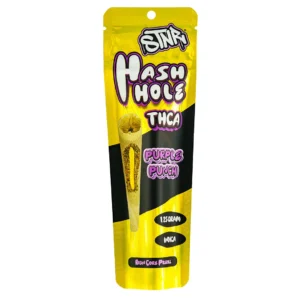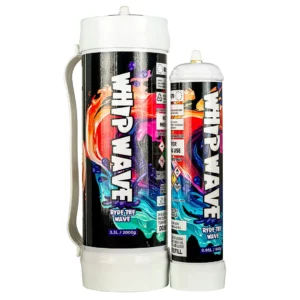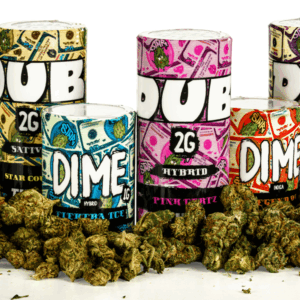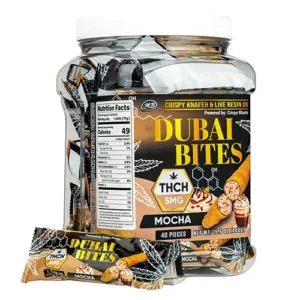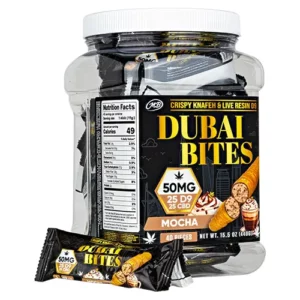Introduction to Delta 8 THC and Its Legal Status in Minnesota
Alright, let’s kick things off with a quick Delta 8 101. For those of you who’ve been living under a rock (or maybe just really, really relaxed), Delta 8 THC is the cool cousin of the more famous Delta 9 THC. It’s a cannabinoid that occurs naturally in hemp plants, but usually in tiny amounts. Thanks to some clever chemistry, it can be extracted and concentrated, giving us a compound that offers a milder high than traditional THC, with potentially fewer side effects.
Now, when it comes to Minnesota Delta-8, things get a bit… interesting. The legal landscape is about as clear as a Minnesota lake after a storm – which is to say, not very. But don’t worry, I’m here to help you navigate these murky waters.
Current Legal Framework for Delta 8 in Minnesota
As of 2024, the legal status of Delta 8 in Minnesota is a bit of a gray area – kind of like deciding whether or not to wear shorts when it’s 60 degrees out. Technically, Delta 8 THC derived from hemp is not explicitly illegal under state law. This is largely thanks to the 2018 Farm Bill, which legalized hemp and hemp-derived products at the federal level.
However, here’s where it gets tricky: Minnesota’s own laws don’t specifically address Delta 8 THC. The state’s Industrial Hemp Development Act aligns with federal law in legalizing hemp and hemp-derived products, but it doesn’t explicitly mention Delta 8. This lack of specific regulation has led to a sort of “don’t ask, don’t tell” situation in the state.
Many retailers in Minnesota are selling Delta 8 products, operating under the assumption that if it’s derived from legal hemp and contains less than 0.3% Delta 9 THC, it’s good to go. But here’s the kicker – state officials have expressed concerns about the safety and regulation of Delta 8 products. They’re worried about the lack of oversight in production and the potential health risks associated with unregulated products.
So, is Delta-8 legal in Minnesota? The short answer is… maybe? It’s not explicitly illegal, but it’s not explicitly legal either. It’s like Schrödinger’s cannabinoid – both legal and illegal until you open the box (or in this case, until more specific legislation is passed).
For now, if you’re looking to buy or use Delta 8 in Minnesota, proceed with caution. While you’re unlikely to face legal consequences for possession or use, it’s important to be aware that the regulatory landscape could change at any moment. Always purchase from reputable sources, and keep an eye on local news for any updates on MN Delta 8 regulations.
Remember, just because something isn’t explicitly illegal doesn’t mean it’s without risks. Stay informed, stay safe, and maybe keep a lawyer’s number handy – just in case. Welcome to the wild west of cannabinoids, Minnesota style!
Detailed Analysis of Minnesota Delta 8 Laws
Let’s dive deeper into the legal labyrinth of Minnesota Delta-8. Buckle up, because we’re about to get into the nitty-gritty of state and federal laws, and how they impact your favorite cannabinoid.
Federal vs. State Laws on Delta 8 THC
When it comes to Delta 8 THC, the federal and state laws are like two siblings who can’t quite agree on what to watch on TV. At the federal level, thanks to the 2018 Farm Bill, hemp-derived products containing less than 0.3% Delta 9 THC are legal. This opened the door for Delta 8 THC, which is typically derived from hemp.
However, Minnesota, being the cool, independent state it is, has its own take on things. While the state generally follows federal guidelines, it’s added its own twist to the Delta 8 saga. The big question on everyone’s mind is, “Is Delta-8 legal in Minnesota?” Well, it’s complicated, but let me break it down for you.
Impact of The Farm Bill on Minnesota’s Stance
The 2018 Farm Bill was like dropping a stone in a pond – its ripples affected cannabis laws across the country, including in Minnesota. This bill essentially legalized hemp and hemp-derived products at the federal level, which had a significant impact on Minnesota’s approach to Delta 8.
In a surprising move that had cannabis enthusiasts doing a double-take, Minnesota legalized the sale of hemp-derived THC edibles in July 2022. This includes products containing up to 5 milligrams of Delta-8 and Delta-9 THC per serving, with a maximum of 50 mg per package. It’s like Minnesota decided to join the party, but with its own unique dance moves.
Understanding Minnesota’s Industrial Hemp Development Act
Now, let’s talk about Minnesota’s Industrial Hemp Development Act. This piece of legislation is like the state’s own remix of the federal Farm Bill. It aligns with federal law in many ways but adds some Minnesota flavor to the mix.
Under this act, hemp and hemp-derived products are legal in Minnesota. However, here’s where things get interesting for Delta 8 enthusiasts. While the act doesn’t explicitly mention Delta 8, it does set the stage for the regulation of hemp-derived products.
State-specific regulations in Minnesota allow for the sale of hemp-derived products with intoxicating levels of THC, but these are subject to certain rules. It’s like being allowed to have a party, but your parents set a strict curfew and volume limit.
One crucial aspect to note is that many localities in Minnesota are taking action to regulate these products. Some have even put moratoriums on the sale of THC products or implemented comprehensive licensing structures. It’s like each town is deciding whether to be the cool parent or the strict one when it comes to Delta 8.
So, while Minnesota Delta-8 products are available, they’re dancing on a legal tightrope. The state allows them, but with specific restrictions and under the watchful eye of local authorities. It’s a delicate balance between embracing the potential benefits of Delta 8 and ensuring public safety.
Remember, the legal landscape is as changeable as Minnesota weather. What’s legal today might not be tomorrow, so always stay informed and purchase from reputable sources. And hey, if you’re ever unsure, maybe consider switching to a nice, cold Minnesota brew instead – no legal gray areas there!
The Legal Distinction Between Delta 8 and Delta 9 THC in Minnesota
First things first, let’s break down the key differences between Delta 8 and Delta 9 THC. Think of them as fraternal twins – similar in many ways, but with their own unique quirks. Delta 9 THC is the well-known psychoactive compound found in marijuana that gives users that classic “high.” Delta 8, on the other hand, is like Delta 9’s chiller sibling, offering milder effects and potentially fewer side effects.
Now, here’s where things get interesting in the North Star State. While Delta 9 THC has been the subject of strict regulation for years, Delta 8 has been flying under the radar – at least until recently. The legal distinction between the two in Minnesota hinges on a few key factors:
- Source: Delta 9 THC is typically derived from marijuana, while Delta 8 is usually extracted from hemp. This is crucial because hemp-derived products got a big thumbs up from the 2018 Farm Bill.
- Concentration: Here’s where Minnesota throws a curveball. As of July 2022, the state legalized the sale of hemp-derived THC edibles, including both Delta 8 and Delta 9, as long as they contain no more than 5 milligrams per serving and 50 milligrams per package. Talk about a plot twist!
- Legal Status: While marijuana-derived Delta 9 THC remains illegal for recreational use in Minnesota, hemp-derived Delta 9 (and Delta 8) products are now in a legal gray area. It’s like they’re playing a game of “Red Light, Green Light” with the law.
So, is Delta-9 legal in MN? Well, it depends. If it’s derived from hemp and follows the concentration limits, then yes, it’s legal in edible form. But if it’s marijuana-derived or exceeds those limits, it’s still a no-go.
The Minnesota Delta-9 laws have created a unique situation where both Delta 8 and Delta 9 THC can be legal, as long as they’re hemp-derived and stay within the prescribed limits. It’s like Minnesota decided to treat these cannabinoids like siblings – they both get to come to the party, but they have to follow the house rules.
This legal distinction has led to some interesting scenarios. You might walk into a store and see Delta 8 gummies right next to Delta 9 edibles, both perfectly legal under Minnesota law. It’s enough to make your head spin faster than after trying either of these products!
However, it’s crucial to remember that this is a rapidly evolving area of law. What’s legal today might not be tomorrow. Local municipalities in Minnesota are also getting in on the action, with some implementing their own regulations or moratoriums on these products.
In the end, the legal distinction between Delta 8 and Delta 9 THC in Minnesota is less about the compounds themselves and more about their source and concentration. It’s like the state is saying, “We don’t care which twin you hang out with, as long as they come from the right family and don’t party too hard.”
As always, if you’re planning to purchase or use either Delta 8 or Delta 9 products in Minnesota, make sure you’re buying from reputable sources and staying up-to-date with the latest regulations. And remember, just because something is legal doesn’t mean it’s risk-free. Stay informed, stay safe, and maybe keep a lawyer’s number handy – just in case the legal landscape decides to do a 180 faster than you can say “cannabinoid.”
Purchase and Possession of Delta 8 THC in Minnesota
Alright, fellow cannabinoid enthusiasts, let’s dive into the nitty-gritty of buying and possessing Delta 8 in the Land of 10,000 Lakes. If you’ve been wondering, “Is Delta-8 legal in Minnesota?” or scratching your head over MN Delta 8 regulations, you’re in for a wild ride. Buckle up!
Age Restrictions and Legal Purchase Age
First things first: let’s talk about who can actually buy Delta 8 in Minnesota. The state isn’t messing around when it comes to age restrictions. Just like alcohol, you’ve got to be 21 or older to purchase Delta 8 products. Sorry, kiddos – you’ll have to stick to root beer for now.
It’s worth noting that Delta 8 is gaining quite a bit of attention in the North Star State. A 2022 survey found that about 32% of Minnesota respondents had heard of Delta-8 products. That’s nearly a third of the population! And among those in the know, 17% reported using a Delta-8 THC product in the past 30 days. That’s about 5% of all respondents getting their Delta 8 on. Not too shabby for a relatively new player in the cannabinoid game!
Licensing Requirements for Sellers
Now, let’s talk about the folks on the other side of the counter. If you’re thinking about selling MN Delta 8, you might want to sit down for this. The licensing requirements for Delta 8 sellers in Minnesota are… well, let’s just say they’re as clear as a Minnesota lake after a storm.
Currently, there’s no specific licensing system for Delta 8 sellers in Minnesota. It’s kind of like the Wild West, but with more lakes and fewer cowboy hats. However, this doesn’t mean it’s a free-for-all. Sellers still need to comply with general business regulations and any local ordinances that might apply to hemp-derived products.
Some cities and counties in Minnesota have started implementing their own licensing requirements for businesses selling Delta 8 and other hemp-derived products. So if you’re planning to open up “Delta 8 Dave’s Dank Dispensary,” you might want to check with your local government first.
Legal Possession Limits and Areas
When it comes to possession limits for Delta 8 in Minnesota, things get a bit… fuzzy. Unlike some states that have specific possession limits for Delta 8, Minnesota’s laws are more focused on the products themselves rather than how much you can carry.
Remember those edibles we talked about earlier? The ones that can contain up to 5 mg of THC per serving and 50 mg per package? Well, there’s no specific limit on how many of these packages you can possess. It’s like being told you can have as many slices of pizza as you want, but each slice can only be so big.
As for where you can possess and use Delta 8, the rules are similar to those for alcohol. Public consumption is a no-go, so keep your Delta 8 gummies at home or in private spaces. And please, for the love of all that is holy, don’t try to operate a boat on one of our 10,000 lakes while under the influence of Delta 8. That’s a quick way to turn a relaxing day on the water into a legal nightmare.
It’s also worth noting that while Delta 8 might be in a legal gray area in Minnesota, it’s still illegal under federal law. This means you shouldn’t try to take your MN Delta 8 across state lines or through airports. Keep it local, folks!
In conclusion, while Delta 8 is available in Minnesota, the legal landscape is about as stable as a canoe in choppy waters. Always purchase from reputable sources, stay informed about local regulations, and use responsibly. And remember, just because something is legal(ish) doesn’t mean it’s risk-free. Stay safe out there, Minnesota!
Selling and Manufacturing Delta 8 Products in Minnesota: A Regulatory Overview
Compliance with Testing Requirements
When it comes to Delta 8 gummies MN and other products, testing is crucial. The state wants to ensure that what you’re selling is actually what you say it is – no surprises, please! While specific testing requirements for Delta 8 are still evolving, manufacturers should follow general hemp product testing guidelines.
This means testing for potency, contaminants, and ensuring that the Delta 9 THC content remains below the legal limit of 0.3%. It’s like making sure your recipe is perfect before serving it to guests – you want to know exactly what’s in there.
Interestingly, among those using Delta-8 THC products in Minnesota, edibles, vapes, and dried herb were the most commonly used. This diversity in product types underscores the importance of comprehensive testing across different forms of Delta 8.
Labelling and Marketing Regulations
Now, let’s talk about packaging and marketing. Remember, folks, we’re not selling snake oil here. The key is transparency and accuracy. Labels should clearly state the Delta 8 THC content, ingredients, and any potential allergens. It’s like being the honest friend who tells you if you have spinach in your teeth – sometimes uncomfortable, but always appreciated.
Here’s a crucial point from our Subject Matter Experts: Do not market or sell to children. This isn’t just good ethics; it’s the law. Your packaging should be child-resistant and not appealing to kids. No cartoon characters or candy-like designs, please.
Another important note: Do not make medical or legal claims. While Delta 8 might be the best thing since sliced bread in your opinion, you can’t claim it cures diseases or keeps you out of legal trouble. Stick to the facts, and let consumers make their own decisions.
Safety Standards and Consumer Protection
Safety first, my friends! When it comes to edibles legal in MN, including Delta 8 products, consumer protection is paramount. This means implementing strict quality control measures in your manufacturing process. Think of it as being the overprotective parent of your products – you want to make sure they’re safe before they leave your sight.
Ensure your products are free from contaminants and that the Delta 8 content is consistent across batches. It’s also crucial to educate your customers about responsible use. Remember, you’re not just selling a product; you’re fostering a culture of safe consumption.
In 2022, consumers in Minnesota reported paying an average of $8.89 per gram of dried flower. While this statistic is for dried flower, it gives you an idea of the market’s pricing expectations. Ensure your Delta 8 products are competitively priced while maintaining high safety and quality standards.
In conclusion, selling and manufacturing Delta 8 products in Minnesota is like walking a tightrope – it requires balance, precision, and a keen awareness of your surroundings. Stay compliant with testing requirements, be transparent in your labeling and marketing, and prioritize consumer safety. Remember, the goal is to create a sustainable, responsible industry that can weather the storms of regulatory changes.
And hey, if you’re feeling overwhelmed, just remember – you’re part of a pioneering industry. It might be challenging, but it’s also exciting. Just like Minnesota’s weather, the regulatory landscape can change quickly, so stay informed and adaptable. Now go forth and conquer the world of MN Delta 8, one gummy at a time!
The Future of Delta 8 Legislation in Minnesota
Alright, fellow cannabinoid enthusiasts, let’s gaze into our crystal ball and explore what the future might hold for Delta 8 in the Land of 10,000 Lakes. Spoiler alert: it’s about as predictable as Minnesota weather in spring!
Emerging Trends and Potential Legislative Changes
So, is Delta-8 legal in Minnesota? Well, as of now, it’s in a bit of a legal gray area. But the winds of change are blowing, and they’re bringing some interesting trends with them.
First off, we’re seeing a growing awareness and acceptance of Delta 8 products among Minnesotans. This increased popularity might push lawmakers to create more specific regulations. It’s like when your favorite underground band suddenly hits the mainstream – things are bound to change.
The legalization of adult-use cannabis and Delta-8 THC products in Minnesota has necessitated ongoing public health monitoring. This monitoring is crucial to understand changes in use patterns and potential health impacts. It’s like the state is keeping a watchful eye on its newly legalized child, making sure it doesn’t get into too much trouble.
We might see more stringent testing requirements and quality control measures in the future. The wild west days of Delta 8 could be coming to an end, replaced by a more regulated landscape. It’s like going from a backyard BBQ to a fancy restaurant – same food, but with more rules and probably fancier plates.
There’s also a possibility of age restrictions becoming more strictly enforced, and we might see limits on the types of Delta 8 products that can be sold. Sorry, folks, your Delta 8 infused lutefisk might not make the cut.
Stakeholder Perspectives: Consumers, Businesses, Law Enforcement
Now, let’s talk about the different players in this Delta 8 drama. It’s like a reality TV show, but with less drama and more cannabinoids.
Consumers are generally excited about Delta 8, seeing it as a legal alternative to traditional THC products. They’re the ones saying, “Finally, something that helps me relax without making me feel like I’m on a spaceship to Mars!” However, they’re also calling for more information about safety and proper usage.
Businesses, particularly those already in the hemp and CBD industry, see Delta 8 as a golden opportunity. It’s like finding an extra fry at the bottom of your McDonald’s bag – unexpected but very welcome. However, they’re also wary of potential regulatory changes that could impact their operations.
Law enforcement, on the other hand, is in a bit of a pickle. With Delta 8 existing in a legal gray area, it’s challenging to enforce regulations consistently. They’re like the referee in a game where the rules keep changing – not an enviable position.
Health professionals and researchers are calling for more studies on the long-term effects of Delta 8 use. They’re the voice of reason in this cannabinoid cacophony, reminding everyone that we still have a lot to learn.
As for policymakers, they’re walking a tightrope. On one side, there’s the potential tax revenue and economic benefits of a thriving Delta 8 industry. On the other, there are concerns about public health and safety. It’s like trying to please both your vegan friend and your carnivore buddy at a dinner party – tricky, but not impossible.
In conclusion, the future of Delta 8 legislation in Minnesota is as unpredictable as a game of Duck, Duck, Gray Duck. We’re likely to see more specific regulations, stricter quality control measures, and ongoing debates about its place in society.
One thing’s for sure – the conversation around Delta 8 in Minnesota is far from over. It’s like a long Minnesota goodbye – just when you think it’s done, there’s more to say. So stay tuned, stay informed, and maybe stock up on your favorite Delta 8 gummies… just in case!
FAQs: Addressing Common Questions About the Legality of Delta 8 THC in Minnesota
Let’s dive into some burning questions about Minnesota Delta-8 that might be swirling in your mind like the waters of the Mississippi. Grab your favorite snack (maybe some Delta 8 gummies?), and let’s get to it!
Is it legal to order Delta 8 products online in Minnesota?
Technically speaking, if Delta 8 products are derived from hemp and contain less than 0.3% Delta 9 THC, they fall into a legal gray area in Minnesota. This means that, as of now, ordering Delta 8 products online isn’t explicitly illegal. However, and this is a big however, it’s not exactly a clear-cut “yes” either.
Here’s the deal: While you can find online retailers willing to ship Delta 8 products to Minnesota, you’re essentially playing a game of legal hot potato. The lack of specific regulations means that while you might not be breaking any laws, you’re not exactly following them either. It’s like wearing socks with sandals – not illegal, but definitely questionable.
If you do decide to order online, make sure you’re buying from reputable sources that provide third-party lab testing results. Remember, just because you can order it doesn’t mean it’s 100% above board. Use your best judgment and maybe keep that order confirmation in a safe place, just in case.
Can I carry Delta 8 products across state lines into or from Minnesota?
Now, this is where things get trickier than trying to pronounce “Wayzata” correctly on your first try. When it comes to carrying Minnesota Delta-8 products across state lines, the answer is a resounding “Ope, better not!”
Here’s why: While Delta 8 might be in a legal gray area within Minnesota, it’s still considered a controlled substance under federal law. This means that crossing state lines with Delta 8 products could potentially land you in hot water faster than you can say “you betcha.”
Think of state lines as a magical barrier where the rules suddenly change. What’s tolerated in Minnesota might be completely illegal in Wisconsin, Iowa, or the Dakotas. It’s like trying to use your “Minnesota Nice” in New York City – it just doesn’t translate well.
Moreover, if you’re thinking about bringing Delta 8 products into Minnesota from another state, you’re essentially playing Russian roulette with the law. Even if the products are legal in the state you’re coming from, you could still face issues when crossing into Minnesota.
The bottom line? It’s best to keep your Delta 8 adventures within state lines. Think of it as a “what happens in Minnesota, stays in Minnesota” kind of situation.
Remember, laws and regulations surrounding Delta 8 are about as stable as a canoe in choppy waters. They could change at any moment, so it’s always a good idea to stay informed about the latest developments.
Changes to Watch For: Future Legal Developments
Alright, fellow cannabinoid enthusiasts, let’s put on our fortune-telling hats and peer into the crystal ball of Minnesota’s Delta 8 future. The legal landscape is about as stable as a Jenga tower in an earthquake, so buckle up for some potential changes!
First off, keep your eyes peeled for more specific regulations regarding Delta 8 THC. As the popularity of these products grows, lawmakers might feel the need to create more defined rules. It’s like when your favorite hole-in-the-wall restaurant suddenly gets popular – things are bound to change, for better or worse.
We might see stricter quality control measures and testing requirements. This could be good news for consumers, as it would ensure safer, more consistent products. But it might also mean higher prices and fewer options. It’s a classic case of “you win some, you lose some.”
Age restrictions could become more strictly enforced. While Delta 8 products are currently supposed to be sold only to those 21 and over, we might see more rigorous ID checks and penalties for selling to minors. Think of it as the “carding everyone who looks under 40” policy, but for cannabinoids.
There’s also a possibility of changes in how Delta 8 products can be marketed and sold. We might see restrictions on packaging designs or limits on where these products can be displayed in stores. It’s like when they moved the candy away from the checkout lines – a little inconvenient, but probably for the best.
Keep an eye out for potential changes in possession limits. While current laws don’t specify exact amounts, future legislation might set clear boundaries on how much Delta 8 you can legally possess. It’s like going from an all-you-can-eat buffet to a set menu – still tasty, but with more defined portions.
Another area to watch is the interplay between state and federal laws. If federal regulations on hemp-derived products change, it could have a ripple effect on Minnesota’s stance on Delta 8. It’s like when your parents change the house rules – suddenly, what was okay yesterday isn’t okay today.
Lastly, be prepared for potential shifts in how Delta 8 is classified. Depending on ongoing research and public health concerns, it might be reclassified under different drug schedules or regulations. This could significantly impact its availability and legal status.

